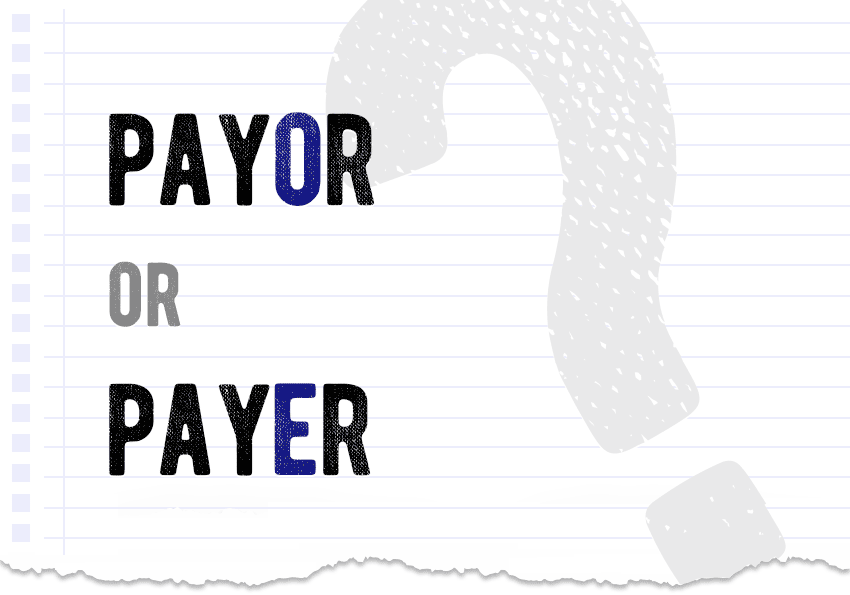Payor or payer – which one is correct?
Payor or payer? You probably have already heard at least one of these two words. Despite that both payor and payer are equally correct, the form payer is a little bit more common, but it is totally up to you which form you use. These two words are not only correct, but they also have the same meaning, so you can use them interchangeably.

Payor or payer – what is the meaning?
Both payor and payer come from the verb pay. The endings -or and -er indicate that a word refers to a noun, typically a person (but it can refer as well to an object, for instance, an institution) that makes a payment.
Payor or payer – what is the difference?
As it was said above both words – payor and payer – have the same meaning and can be used interchangeably. However, it is possible to point out a minor difference between these two. The word payor tends to be used in the medical and legal context, for example, to indicate an institution, which is obliged to make a payment to a payee (a person who receives money). On the other hand, the payer is more often used with reference to a single person and in a less formal context.
Payor or payer – now it’s all clear!
Look at the examples below to learn it all by heart:
She is thought to be Britain’s highest individual tax payer.
BBC, 3rd March 2022
First, how does it feel wasting tax payer money and government resources with your pranks?
Ghostbusters: Answer the Call (2016) [01:26:47]
What can be done when a broker or other payor has invoked backup withholding on investment earnings or sales proceeds in a tax-exempt retirement trust?
The Free Library. S.v. Claiming a refund for erroneous backup withholding from exempt retirement plan trusts


